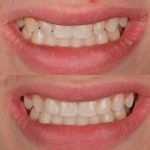
Daily Brushing Techniques for Lasting Oral Health
One of the most important steps in learning how to maintain oral hygiene at home is proper brushing. Experts recommend brushing twice a day, ideally in the morning and before bed, using a soft-bristled toothbrush. The angle matters—hold your brush at 45 degrees toward the gum line and use gentle circular motions rather than harsh scrubbing. This method removes plaque without damaging your enamel or gums. Many Americans who grew up brushing quickly are often surprised at how much difference technique can make. One patient shared that after adjusting her brushing style, her gums stopped bleeding within two weeks.
Choosing the Right Toothpaste
Selecting toothpaste with fluoride is vital to protect teeth from decay. Specialty formulas such as sensitivity toothpaste or whitening options can also be helpful, but the core benefit always comes from fluoride protection. Rotate brands occasionally to see what feels most comfortable, as some people notice fresher results with different textures or flavors.
The Role of Flossing and Interdental Cleaning
Brushing alone cannot remove food particles and plaque between teeth. That is why flossing remains an essential step in oral hygiene at home. Floss at least once a day, sliding gently between teeth and curving along the gum line to avoid injury. For people with braces or sensitive gums, water flossers and interdental brushes can provide a more comfortable experience. A story shared online described how one college student struggled with cavities despite regular brushing—until adding nightly flossing, which dramatically reduced dental issues during her next checkup.
Flossing Made Easier
If flossing feels tedious, try flavored floss or pre-threaded floss picks. These tools make the habit easier and more consistent, especially for children or busy professionals.
Importance of Gum Health
Healthy gums are the foundation of strong teeth. Signs of gum disease include swelling, redness, and bleeding when brushing. To prevent these issues, consistent oral care at home is critical. Massaging gums gently while brushing stimulates circulation and helps maintain resilience. Dentists emphasize that untreated gum disease can eventually lead to tooth loss, making prevention even more important.
Simple Steps for Stronger Gums
Limit sugary foods that feed bacteria and rinse with an alcohol-free mouthwash to reduce irritation. Adding leafy greens and vitamin C-rich foods to your diet also supports gum health naturally.
Preventing Cavities Through Smart Habits
Cavities form when plaque bacteria break down sugars, producing acids that erode enamel. Beyond brushing and flossing, limiting frequent snacking and sugary drinks helps prevent cavities. Drinking water after meals and chewing sugar-free gum stimulates saliva flow, which neutralizes acids and protects teeth. Parents can make oral hygiene fun for children by turning brushing into a game with timers or music, helping build habits that last into adulthood.
Sealants and Fluoride Treatments at Home
Although many treatments are done at the dentist, families can benefit from over-the-counter fluoride rinses. These products provide extra protection for children and adults at higher risk for cavities.
Fresh Breath and Confidence
Bad breath is often linked to poor oral hygiene, dry mouth, or leftover food particles. Brushing your tongue daily, drinking plenty of water, and reducing coffee or alcohol intake can make a noticeable difference. Some people find that tongue scrapers provide a fresher feeling than brushing alone. A business professional once admitted that improving his breath boosted his confidence during presentations—reminding us that oral care impacts more than just health; it influences how we connect with others.
When to Seek Professional Help
Even with perfect habits, home care cannot replace professional dental cleanings. Dentists recommend visiting every six months for a comprehensive cleaning and exam. However, if you notice persistent bad breath, tooth sensitivity, or bleeding gums, schedule an appointment sooner. These symptoms may indicate underlying conditions requiring immediate care.
Why Expert Guidance Matters
For anyone still wondering how to maintain oral hygiene at home, the key is consistency, technique, and informed choices. But expert advice can fine-tune your routine to your unique needs. At Family Dentistry Online 【 】, you can access tailored recommendations for safe and effective dental care products, along with professional guidance to keep your smile bright and healthy.







 CHAVDENTAL MATAMOROS4.0 (28 review)
CHAVDENTAL MATAMOROS4.0 (28 review) Premiere Dental of West Deptford4.0 (352 review)
Premiere Dental of West Deptford4.0 (352 review) Dental Solutions of Roxborough4.0 (219 review)
Dental Solutions of Roxborough4.0 (219 review) Levine Orthodontics5.0 (206 review)
Levine Orthodontics5.0 (206 review) High Tide Dental- Dr. Lucas Homicz, DDS5.0 (150 review)
High Tide Dental- Dr. Lucas Homicz, DDS5.0 (150 review) Amsterdam Dental Group4.0 (184 review)
Amsterdam Dental Group4.0 (184 review) The Importance of Oral Health Education During Pregnancy for a Healthy Pregnancy
The Importance of Oral Health Education During Pregnancy for a Healthy Pregnancy Best Tips for Brushing Your Teeth Properly for Healthy Gums: Essential Techniques for Oral Health
Best Tips for Brushing Your Teeth Properly for Healthy Gums: Essential Techniques for Oral Health Why Skipping Dental Checkups Can Lead to Bigger Oral Health Problems
Why Skipping Dental Checkups Can Lead to Bigger Oral Health Problems Advantages of Porcelain Dental Restorations
Advantages of Porcelain Dental Restorations How Can Diabetes Cause Tooth and Gum Problems? Preventing and Managing Oral Health Issues
How Can Diabetes Cause Tooth and Gum Problems? Preventing and Managing Oral Health Issues Healthy Habits for Promoting Good Oral Health and Hygiene: Tips for a Healthy Smile
Healthy Habits for Promoting Good Oral Health and Hygiene: Tips for a Healthy Smile